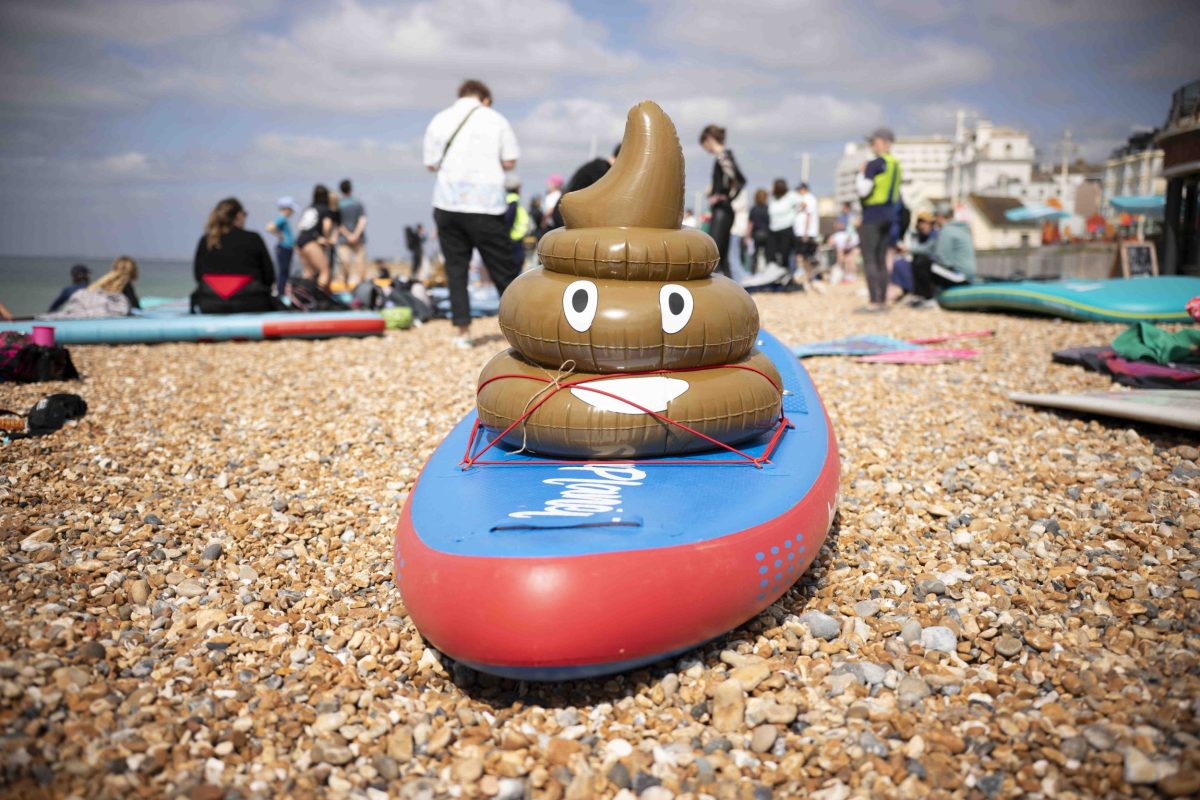Sewage Spills in England Due to Torrential Rain
Hundreds of sewage spills were recorded across England over the weekend as torrential rain overwhelmed the infrastructure of water companies. Popular tourist spots from Northumberland to Cornwall became polluted with raw waste, as water companies were forced to discharge sewage through “storm overflows.” These storm overflows are used to prevent water companies’ pipe networks from becoming overwhelmed during extreme weather, in order to stop sewage backing up into people’s homes.
Yellow thunderstorm warnings were in place across much of England over the weekend, while an amber warning was issued for London and parts of the southeast. A yellow thunderstorm warning is still active for large parts of the country until 9pm on Monday.
During periods of extreme wet weather, large amounts of rainfall make their way into the pipe network where it mixes with sewage. Water companies store this excess water in large storm tanks, however, if these become full, the untreated waste must be released back into rivers via storm overflows.
Firms have been widely criticized for how often they are doing this: in 2024, water companies spilled sewage 450,398 times. Figures released by the Environment Agency showed serious water pollution incidents had increased by 60 per cent from 2023 to 2024.
Online maps published by water companies showed hundreds of storm overflows were active during the wet weather this weekend, dumping a deluge of sewage into the country’s rivers, lakes and seas. Spills occurred at popular swim spots across the country, including Penzance in Cornwall, Morecambe Bay in the North West and Eastbourne in Kent.
At an official bathing spot at Whitley Bay in the North East, Northumbrian Water dumped sewage for two-and-a-half hours on Saturday evening. A storm overflow next to Firestone Bay in Plymouth was active for four hours on Sunday morning. There were several sewage spills across the Isle of Wight, including at Cowes, Sandown and Shanklin. Sewage was dumped at West Beach in Whitstable for seven hours on Saturday morning.
Campaigners were critical of the widespread sewage dumping at a time when large parts of the country are in drought. “During downpours or drought, these profit-hungry water companies are dumping sewage into our blue spaces at a disgusting rate,” said Giles Bristow, CEO of Surfers Against Sewage. “It’s the grim result of years of chronic underinvestment, and symptomatic of a system that prioritises payouts and bonuses instead of the environment or people.”
A drought has been declared in five regions in the UK, including Yorkshire, the North West and Midlands, while a further six regions are in “prolonged dry weather,” which means they could enter drought soon. Before this weekend’s thunderstorms, all regions in England had recorded below average levels of rainfall for the month of July.
Government Response and Future Plans
Water companies said they are investing billions over the next five years to reduce the number of sewage spills. The regulator Ofwat has approved a record £104bn investment by water companies over the next five years, however this will be funded by average bill increases of 36 per cent before inflation.
It comes as the Environment Secretary, Steve Reed, pledged on Sunday that the Government would halve the number of sewage spills across England by 2030. The target would be measured against last year’s figures, when water companies spilled sewage 450,398 times.
It is also rumoured that ministers are poised to announce the scrapping of Ofwat this week in response to an independent review of the water industry that Labour ordered when it came into power. The shake-up would be a major win for The i Paper’s Save Britain’s Rivers campaign, which has called for a major overhaul in the way water companies are regulated.







